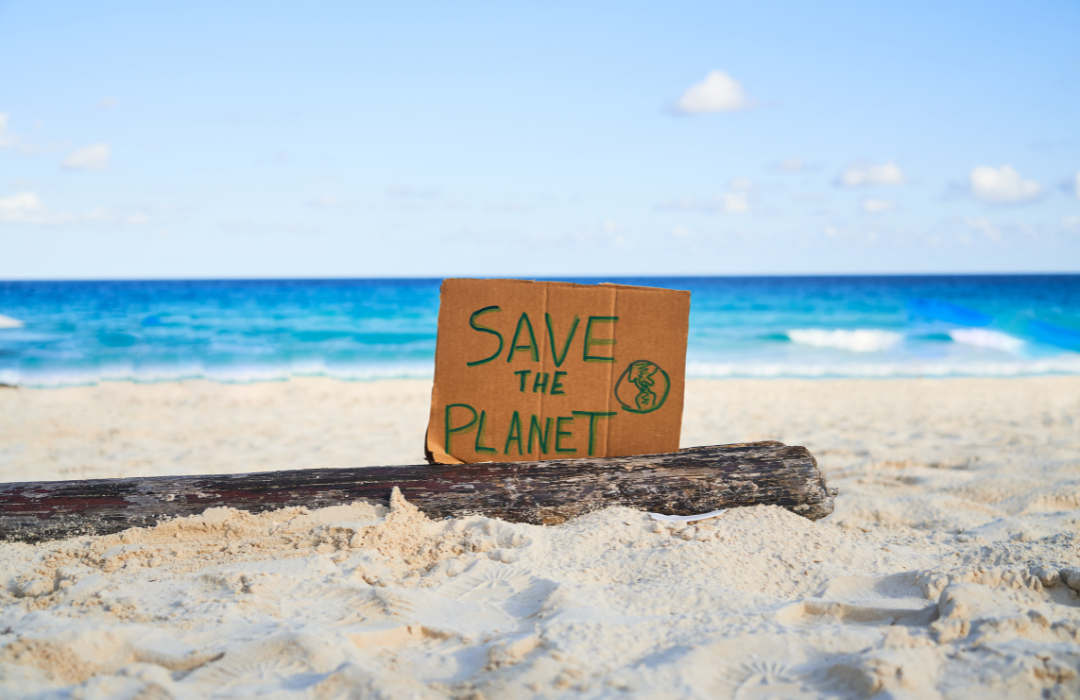Believe it or not, superyachts aren’t all lavish interiors, extravagant charter trips and over-indulgence. Sometimes, owners, guests and yacht crew make conscious efforts to minimise their impact on the environment they are enjoying and support ocean conservation.
With World Oceans Day approaching, let’s explore how superyachts can pitch in to help protect our marine ecosystems.
Conservation expeditions and awareness campaigns
One way to influence change in the superyacht industry is to encourage education among guests and crew. Why not share information or partake in courses and workshops to become a sustainability champion onboard? The Water Revolution Foundation provides some great resources and guidance.
Additionally, yacht owners and charter companies are now setting up trips to highlight the beauty of marine environments and the urgent need to protect them.
For example, The Blue Marine Foundation teams up with yacht rental companies for “yachting for good” trips. Guests on these trips can help with activities like fixing coral reefs, cleaning up beaches, and keeping an eye on marine animals. It’s a good way to get involved in helping the environment, and it makes everyone feel like they’re doing their part.
Sustainable practices and technologies
Think about ways to be more sustainable onboard:
- Energy saving – aspects of living such as lighting and air conditioning should be evaluated.
- Waste management – refilling products to cut plastic waste, using eco-friendly products.
- Sustainable navigation – opting for sustainable routes and anchorages to avoid damage to sensitive marine habitats (respecting no-anchor zones and local restrictions).
- Volunteering – take part in beach clean-ups or support local marine reserves.
Many of our own team have been part of sustainability initiatives during their time on yachts; Simon, Captain Consultant, recalls taking part in weekly beach cleans in Barcelona alongside other yachts docked in the marina, which helped to create a wholesome community feel. As superyacht Captain, Simon was also audited on efforts to improve efficiency, reduce fuel consumption, and opt for more sustainable routes.
As well as a rise in the number of hybrid yachts, it’s also promising that 130 yachts have joined the Clear Ocean Pact to cut down on using plastic onboard. During her time onboard, Private Chef and Galley Consultant, Jasmin, witnessed some yachts offering training for interior crew on recommended eco-friendly cleaning products and how to use them.
Superyachts are now embracing sustainable practices and integrating eco-friendly technologies, from hybrid propulsion systems to onboard waste management solutions, to minimise environmental impact without compromising on luxury and comfort. Initiatives like these reduce individual yachts’ carbon footprint and set an example for the wider maritime industry to follow.
Marine research and exploration
Superyachts, with their state-of-the-art technology, are ideal platforms for marine research and exploration and many owners and charterers have generously lent their vessels for various studies. From tracking marine life migrations to conducting oceanographic surveys, we have heard various stories of researchers and scientists being invited onboard yachts to give them unique access to remote and often inaccessible parts of the ocean.
For example, REV Ocean, the world’s largest superyacht, doubles as a scientific research platform, equipped with laboratories, underwater drones, and advanced monitoring systems; It aims to tackle issues such as plastic pollution, overfishing, and climate change through collaborative research efforts.
This shows that although superyachts may ooze extravagance and luxury, they also have the potential to assist in the conservation of our oceans and marine ecosystems. It should be the case that the people who reap the benefits of beautiful coastlines and untouched beaches would want to protect them.





